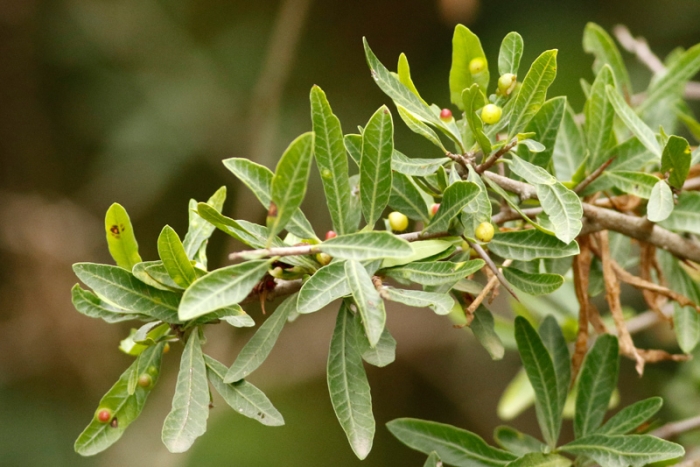Longleaf Peppertree
(Schinus longifolia)
Longleaf Peppertree (Schinus longifolia)
/
/

© J. Simón Tagtachian
CC BY-SA 4.0
Image By:
© J. Simón Tagtachian
Recorded By:
Copyright:
CC BY-SA 4.0
Copyright Notice:
Photo by: © J. Simón Tagtachian | License Type: CC BY-SA 4.0 | License URL: http://creativecommons.org/licenses/by-sa/4.0/ | Uploader: simontagtachian | Publisher: iNaturalist |





















Estimated Native Range
Summary
Schinus longifolia, commonly known as Longleaf Peppertree or Longleaf Brazilian Peppertree, is a moderate-growing deciduous tree native to the subtropical and temperate regions of South America, particularly in Brazil, Argentina, and Paraguay. It thrives in a variety of habitats including the Brazilian cerrado, the Chaco region, and along riverbanks and forest margins. The tree typically reaches a height of 20-40 feet (6-12 meters) and a width of 15-25 feet (4.6-8 meters), with a rounded canopy and a somewhat open, irregular form. The Longleaf Peppertree is notable for its pinnate leaves that are aromatic when crushed and its clusters of small, white flowers that bloom in spring, followed by red berries that are attractive to birds.
The Longleaf Peppertree is valued for its ornamental features, including its aromatic foliage and showy fruit. It is used in urban landscaping, as a shade tree, and occasionally as a windbreak. This species is adaptable to a range of soil types, including clay, loam, and sandy soils, provided they have medium to fast drainage. It requires medium amounts of water and can tolerate both full sun and partial shade. While it is not a common cultivar, its ease of maintenance and drought tolerance once established make it a practical choice for gardeners in suitable climates. However, it is important to be aware that Schinus longifolia can become invasive outside its native range, particularly in subtropical climates, where it can outcompete native vegetation.CC BY-SA 4.0
The Longleaf Peppertree is valued for its ornamental features, including its aromatic foliage and showy fruit. It is used in urban landscaping, as a shade tree, and occasionally as a windbreak. This species is adaptable to a range of soil types, including clay, loam, and sandy soils, provided they have medium to fast drainage. It requires medium amounts of water and can tolerate both full sun and partial shade. While it is not a common cultivar, its ease of maintenance and drought tolerance once established make it a practical choice for gardeners in suitable climates. However, it is important to be aware that Schinus longifolia can become invasive outside its native range, particularly in subtropical climates, where it can outcompete native vegetation.CC BY-SA 4.0
Plant Description
- Plant Type: Tree
- Height: 20-40 feet
- Width: 15-25 feet
- Growth Rate: Moderate
- Flower Color: White
- Flowering Season: Spring
- Leaf Retention: Evergreen
Growth Requirements
- Sun: Full Sun, Part Shade
- Water: Medium
- Drainage: Medium, Fast
Common Uses
Border Plant, Erosion Control, Low Maintenance
Natural Habitat
Native to the subtropical and temperate regions of South America, particularly in Brazil, Argentina, and Paraguay, including the Brazilian cerrado, the Chaco region, and along riverbanks and forest margins
Other Names
Common Names: Longleaf Brazilian Peppertree
Scientific Names: , Schinus longifolia, Duvaua longifolia, Schinus dependens var. alfa,
GBIF Accepted Name: